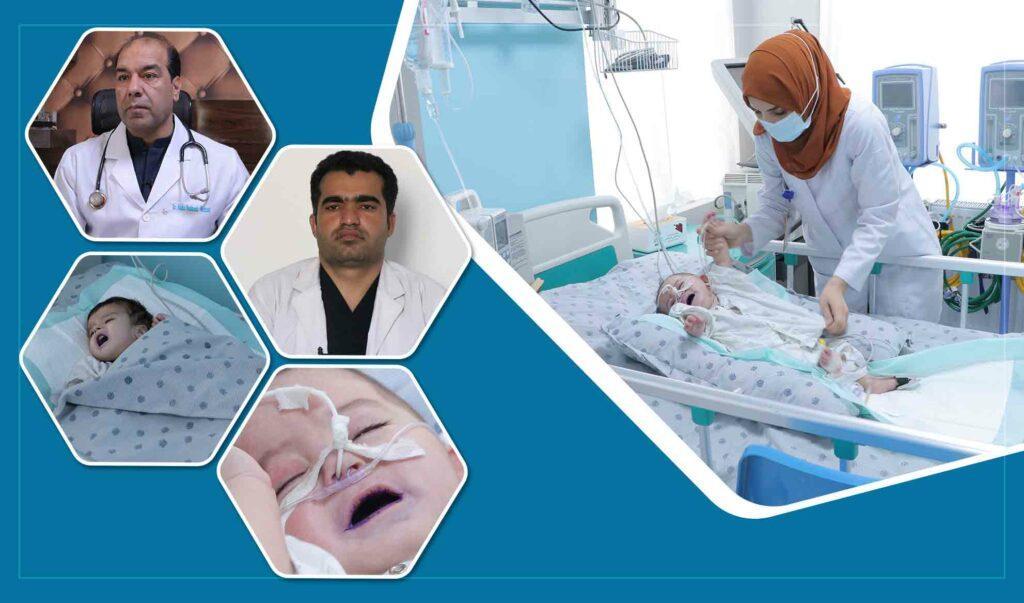
Kabul: Child Respiratory Illness On Rise In Winter
KABUL (Pajhwok): Amid harsh cold weather, the residents of Kabul are complaining about increasing respiratory diseases, particularly among children.
Doctors stress the importance of maintaining precautions, breastfeeding babies and isolating sick children from healthy ones as effective measures in preventing the spread of respiratory diseases and quick recovery.
Aminullah Hussaini, a resident of 3rd municipality district in Kabul, told Pajhwok Afghan News that his one-and-a-half-year-old daughter has been suffering from a runny nose and severe coughing for the past week.
He added his daughter was currently hospitalized at the Ariana Medical Complex, saying:“Since last night, she has also had vomiting and diarrhea, and after developing a chest infection, I brought her to the hospital. Thankfully, her condition has improved a bit.”
According to him, several other family members, including both adults and children, have also been infected with a runny nose and chest infection.
Habib-ur-Rahman Stanikzai, another resident of Kabul, also said that several people in their family were suffering from a cold and sore throat.
He said one of his nephews, who was diagnosed with a chest infection and had been in poor health, was currently hospitalized.
Meanwhile, Asadullah Mohammadkhil, a resident of the Bagrami district in Kabul, said that respiratory diseases, especially runny nose, had increased among their friends and relatives due to the severe cold weather.
He said:“My two-month-old nephew was brought to the French Hospital with severe runny nose and chest infection, high fever, and weakness. He has been hospitalized for four days, but thankfully, he is slightly improving.”
Doctors say respiratory disease increase every year in winter
Dr. Abdul Rashid Mansoor, a pediatrician at the Ariana Medical Complex, told Pajhwok that respiratory diseases increase every year in winter season.
He said:“Unfortunately, we are in a very cold season, and the air is highly polluted. Our patient visits have increased significantly compared to other seasons. About 90 percent of our patients have respiratory diseases, and many of them are in the early stages of life because the likelihood of illness is extremely high in the first five years of life.”
He added that this year, the severity of the diseases has increased compared to last year, with patients taking longer to recover, needing more prescriptions, and showing slower responses to medications.
He explained that respiratory diseases spread through coughing, sneezing, direct contact, and touching contaminated surfaces, with symptoms such as fever, wheezing, runny nose, weakness, coughing, watery eyes, shortness of breath, and abnormal breathing sounds.
He stated:“Respiratory diseases are mostly seasonal and can affect children, but there is a group that is at a higher risk of these diseases. This includes premature babies, children with weak immune systems, children lacking sufficient vitamins, especially vitamin A, children who are not breastfed or vaccinated, and children living in crowded areas.”
He added:“Additionally, children with underlying health conditions, such as heart problems or diabetes, or those living in polluted environments, have a significantly higher chance of contracting respiratory diseases compared to other children.”
He urged families to focus on environmental health, ensure that infected individuals wear masks, and isolate sick individuals from healthy ones.
He also advised against self-medication and recommended taking sick children, especially, to a doctor as soon as possible.
Dr. Wali Mohammad Arin, a pediatric specialist at the French Institute for Children's Medicine in Kabul, also stated that while respiratory diseases can occur in any season, they are more common in winter due to the polluted air and the fact that rooms are often kept closed.
“Around 80 percent of our patients are suffering from respiratory diseases, most of whom are children under five years of age. We admit seven to eight respiratory patients daily,” he said.
He referred to respiratory diseases as contagious, caused by viruses and bacteria, with symptoms including coughing, fever, headache, nasal congestion, runny nose, shortness of breath, wheezing, and weakness.
He added that respiratory diseases are more commonly observed in children under five, especially in those with weak immune systems, those who have not been vaccinated, those who are not properly nourished, and those with additional health conditions. These children are at a higher risk of severe illness.
He recommended breastfeeding, vaccination, and maintaining health precautions to reduce the risk of these diseases.
He also advised individuals with respiratory diseases to wear masks.
sa/ma

Legal Disclaimer:
MENAFN provides the information “as is” without warranty of any kind. We do not accept any responsibility or liability for the accuracy, content, images, videos, licenses, completeness, legality, or reliability of the information contained in this article. If you have any complaints or copyright issues related to this article, kindly contact the provider above.






















Comments
No comment